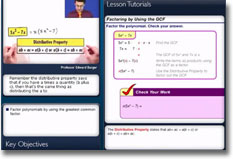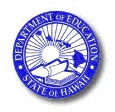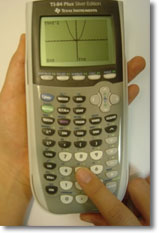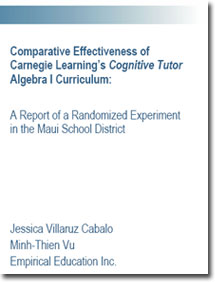Agile Assessment and the Impact of Formative Testing on Student Achievement in Algebra

Empirical Education contracted with Jefferson Education Accelerator (JEA) to conduct a study on the effectiveness of formative testing for improving student achievement in Algebra. We partnered with a large urban school district in the northeast U.S. to evaluate their use of Agile Assessment. Developed by experts at the Charles A Dana Center at the University of Texas and education company Agile Mind, Agile Assessment is a flexible system for developing, administering, and analyzing student assessments that are aligned by standard, reading level, and level of difficulty. The district used benchmark Agile Assessments in the fall, winter, and spring to assess student performance in Algebra along with a curriculum it had chosen independent of assessments.
We conducted a quasi-experimental comparison group study using data from the 2016-17 school year and examined the impact of Agile Assessment usage on student achievement for roughly 1,000 students using the state standardized assessment in Algebra.
There were three main findings from the study:
- Algebra scores for students who used Agile Assessment were better than scores of comparison students. The result had an effect size of .30 (p = .01), which corresponds to a 12-percentile point gain, adjusting for differences in student demographics and pretest between treatment and comparison students.
- The positive impact of Agile Assessment generalized across many student subgroups, including Hispanic students, economically disadvantaged students and special education students.
- Outcomes on the state Algebra assessment were positively associated with the average score on the Agile Assessment benchmark tests. That said, adding the average score on Agile Assessment benchmark tests to the linear model increased its predictive power by a small amount.
These findings provide valuable evidence in favor of formative testing for the district and other stakeholders. Given disruptions in the current public school paradigm, increased frequency of formative assessment could provide visibility towards greater personalized instruction and ultimately increase student outcomes. You can read the full research report here.









